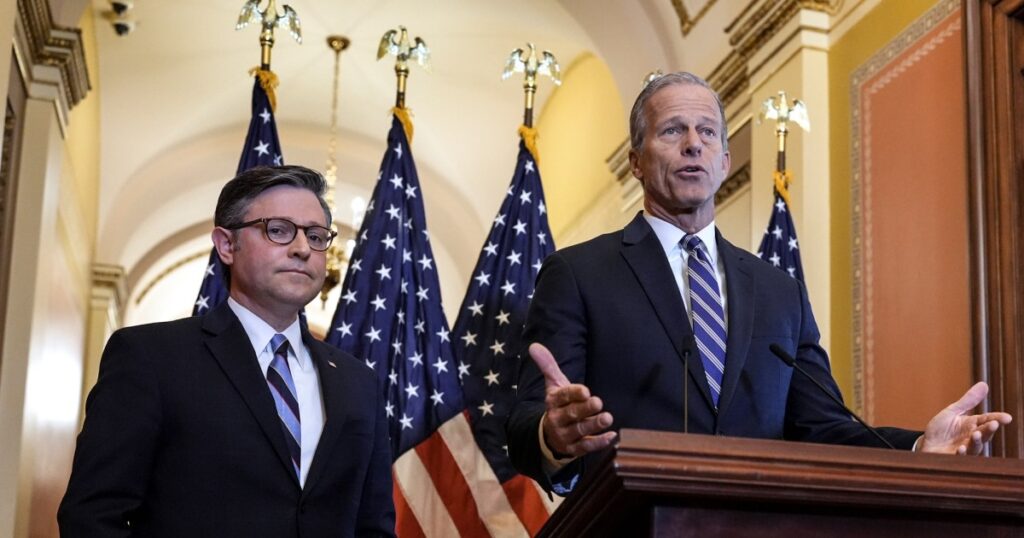WASHINGTON — The sweeping Republican bill for President Donald Trump’s domestic agenda is projected to add $2.4 trillion to the national debt over the next 10 years, according to a new estimate from the nonpartisan Congressional Budget Office.
The figure is slightly higher than an earlier version of the bill, which the CBO projected to add $2.3 trillion in new debt.
The budget office also estimated that the package would increase the number of people without health insurance by 10.9 million by 2034 because of spending cuts and new eligibility rules under Medicaid and the Affordable Care Act.
The coverage losses include 1.4 million people “without verified citizenship, nationality, or satisfactory immigration status” who the CBO projects would fail to meet that new requirement.
The long-awaited new score factors in a series of last-minute revisions GOP leaders made to placate holdouts before the House passed the legislation last month. The changes include a higher state and local tax deduction and a provision that would trigger the Medicaid work requirements sooner than the original legislation would have.
Overall, the CBO and the Joint Committee on Taxation found that over a 10-year period, the legislation would decrease revenues by $3.7 trillion, while cutting net spending by $1.3 trillion — for a total of $2.4 trillion in new red ink.
The legislation is now in the hands of the Senate, where top Republicans want to make changes and pass a revised version by July 4. It is unclear what changes they will make or how those revisions would affect the deficit.
The score contradicts claims by the White House and GOP leaders that the bill won’t worsen the national debt. They have highlighted the spending while downplaying the tax cuts and extensions that affect the long-term budget outlook.
And it emboldens new criticism by Trump’s billionaire former adviser Elon Musk, who excoriated the bill Tuesday as a “disgusting abomination,” citing the increase in the debt.
White House budget director Russell Vought pushed back on the CBO score, highlighting the spending cuts while downplaying the new deficits it would create. He argued that an extension of the Trump tax cuts shouldn’t be scored as increasing the deficit, calling it a “realistic” baseline to assume they continue at no cost.
“It includes $1.7 trillion in mandatory savings, the most in history. If you care about deficits and debt, this bill dramatically improves the fiscal picture,” Vought wrote on X.
House Majority Leader Steve Scalise, R-La., said the CBO isn’t giving enough credit to the economic benefits of the tax cuts.
For their part, Democrats invoked the CBO score to tear into the bill.
“Even after the biggest cuts to health care and food assistance in U.S. history, the Republican bill for billionaires would still add a historic amount to our debt — all to give the ultra-rich more tax breaks,” Rep. Brendan Boyle, D-Pa., the ranking member on the House Budget Committee, said in a statement. “Republicans cry crocodile tears over the debt when Democrats are in charge — but explode it when they’re in power.”

